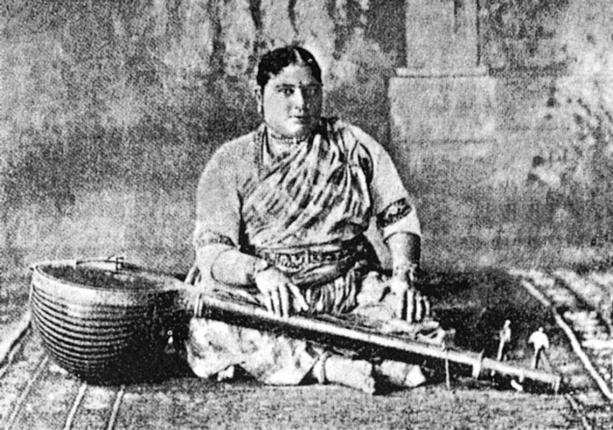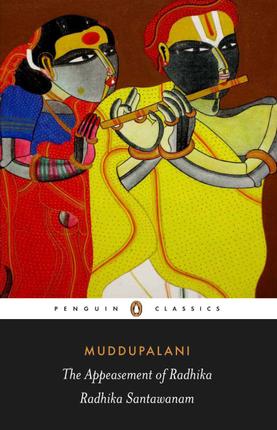
In light of the Perumal Murugan incident, here is a look at the case of Radhika Santwanamu, which was banned on grounds of obscenity 102 years ago.
The script that has played out in the Perumal Murugan case is all too familiar. A creative person offers his/her work to the public. It survives peacefully for sometime before certain vested and intolerant interests wake up to it. Protests and demands for the work’s proscription follow. The administration proves only too eager to scuttle the creation in the interests of ‘peace’. A long debate follows, which then plays on till the media keeps reporting it. What is left is a lot of heartburn for the creator. The intolerant elements tighten their grip on society and the administration pats itself on the back for preventing any untoward incident over the matter.
To students of history, these incidents have played themselves over and over again always to the same script. Remember M.F. Husain? We had similar depictions of goddesses in our temples, in art and even in hymns, for centuries. Nobody bothered about those but when Husain painted goddesses in a particular style, well… At the recently concluded Lit for Life, we had A.R. Venkatachalapathy telling us that the State enacted the Madras Dramatic Performance Act in 1954 only to gag M.R. Radha.
Interestingly, the very first case under the Indian Penal Code for the proscription of a work on grounds of obscenity happened 102 years ago and the book was Radhika Santwanamu. If Perumal Murugan’s Madorubagan sold for a year before it came to the notice of its detractors, the Santwanamu had been in existence for over two centuries! The creation of Muddu Palani, the concubine of the 17th century Maratha ruler Pratapasimha (r1739-1763), it holds the distinction of being one of the very few erotic classics written by a woman.
Saved from oblivion by the Telugu scholar C.P. Brown, it was published for the first time in 1887, and once again in 1907 by Venkatanarasu, an associate of Brown’s. The first edition was included in his 1887 compilation of Telugu works by the scholar and social reformer Kandukuri Veeresalingam Pantulu. In it, while he praised the ideal admixture of Telugu and Sanskrit in the work, Veeresalingam claimed to be shocked by its contents. He also added that this was not surprising as the work was that of an ‘adulteress.’
All would have still been well had not the powerful singer, courtesan and woman of letters, Bangalore Nagarathnamma brought out a new edition of the book in 1910. This was chiefly out of a desire to weed out errors that had crept into the published versions and also partly to expose Veeresalingam’s hypocrisy. Pointing out in the preface of the book that while denouncing Muddu Palani’s work, Veeresalingam had edited similar books by men with far more graphic descriptions of sex, Nagarathnamma questioned if an erotic work became shameless only if written by a woman. She also lampooned Veeresalingam for recommending similar works written by men be included in the syllabus of the Madras University.
The Veeresalingam faction could not bear to see their idol treated thus. The Telugu magazine Sasirekha carried a scathing review of the Nagarathnamma edition denouncing it as a grossly obscene work written by one prostitute and edited by another with descriptions that would corrupt the young by “by suggesting to their minds thoughts of the most impure and libidinous character”. Everyone overlooked the fact that the book had been around for years and jumped into the act immediately.
In order to make it appear that this book alone was not being targeted, the police in their raids on the publisher Vavilla Ramaswami Sastrulu & Sons, seized several titles, including some of Veeresalingam himself. These were later removed from the list and a final set of eight books was submitted to a committee to study their merits and see if any needed to be proscribed.

It was in vain that Nagarathnamma, several scholars and Telugu aristocrats protested. Some even called on the Governor, Sir Arthur Lawley in Ootacamund to lobby against the ban. G. Venkataranga Rao, Secretary to the Landowners Association, asked if the Government would in the same light consider banning age-old English works such as Shakespeare’s Venus and Adonis and The Rape Of Lucrece. But all of this was to no avail. The inspecting committee gave its verdict by end 1911. All other seven titles could be released from proscription. Radhika Santwanamu alone was to be banned, its chief crime being that it was an erotic work written by a woman. The Government moved quickly thereafter, and on July 4, 1912, passed an order to that effect.
It remained banned till Independence. During the brief period in 1947-48 when T. Prakasam was Chief Minister of Madras, he rescinded the order, stating that he was restoring a pearl to the necklace that was Telugu. Should we live in the same hope that Perumal Murugan will one day return to writing?
source: http://www.thehindu.com / The Hindu / Home> Books> Literary Review / by Sriram V / January 31st, 2015